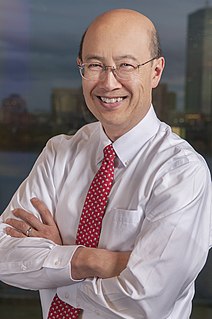A Quote by Robert J. Shiller
Since the global financial crisis and recession of 2007-2009, criticism of the economics profession has intensified. The failure of all but a few professional economists to forecast the episode - the aftereffects of which still linger - has led many to question whether the economics profession contributes anything significant to society.
Related Quotes
For a variety of reasons, I have always felt myself an outsider. I don't know how to classify myself in economics. I am a loner. I do not like groupthink, which, if anything, has become more important in economics. In addition, a lot of the values I hold are not the mainstream values in the profession.
My clinical psychologist wife of 40 years has always had a close intellectual influence on me. When I was beginning to talk openly in the economics profession about irrationality in decision-making, I received a lot of criticism. Ginny would support my views and remind me that a whole other profession - psychology - studies people's irrational sides.
How should the best parts of psychology and economics interrelate in an enlightened economist's mind?... I think that these behavioral economics...or economists are probably the ones that are bending them in the correct direction. I don't think it's going to be that hard to bend economics a little to accommodate what's right in psychology.
Mathematical economics is old enough to be respectable, but not all economists respect it. It has powerful supporters and impressive testimonials, yet many capable economists deny that mathematics, except as a shorthand or expository device, can be applied to economic reasoning. There have even been rumors that mathematics is used in economics (and in other social sciences) either for the deliberate purpose of mystification or to confer dignity upon common places as French was once used in diplomatic communications.
Economists operate with this image of the homo economicus, the rational economic agent, and while such agents are rare in the wider world, they are common in economics departments. Exemplifying the homo economicus paradigm, economists typically choose their research projects and hypotheses so as to promote their own careers, to maximize their lifetime income. This explains the astonishing pressures toward conformity in academic economics: how deviant views (except those by a few who have already achieved stardom) get crushed by an army of conformists.


































